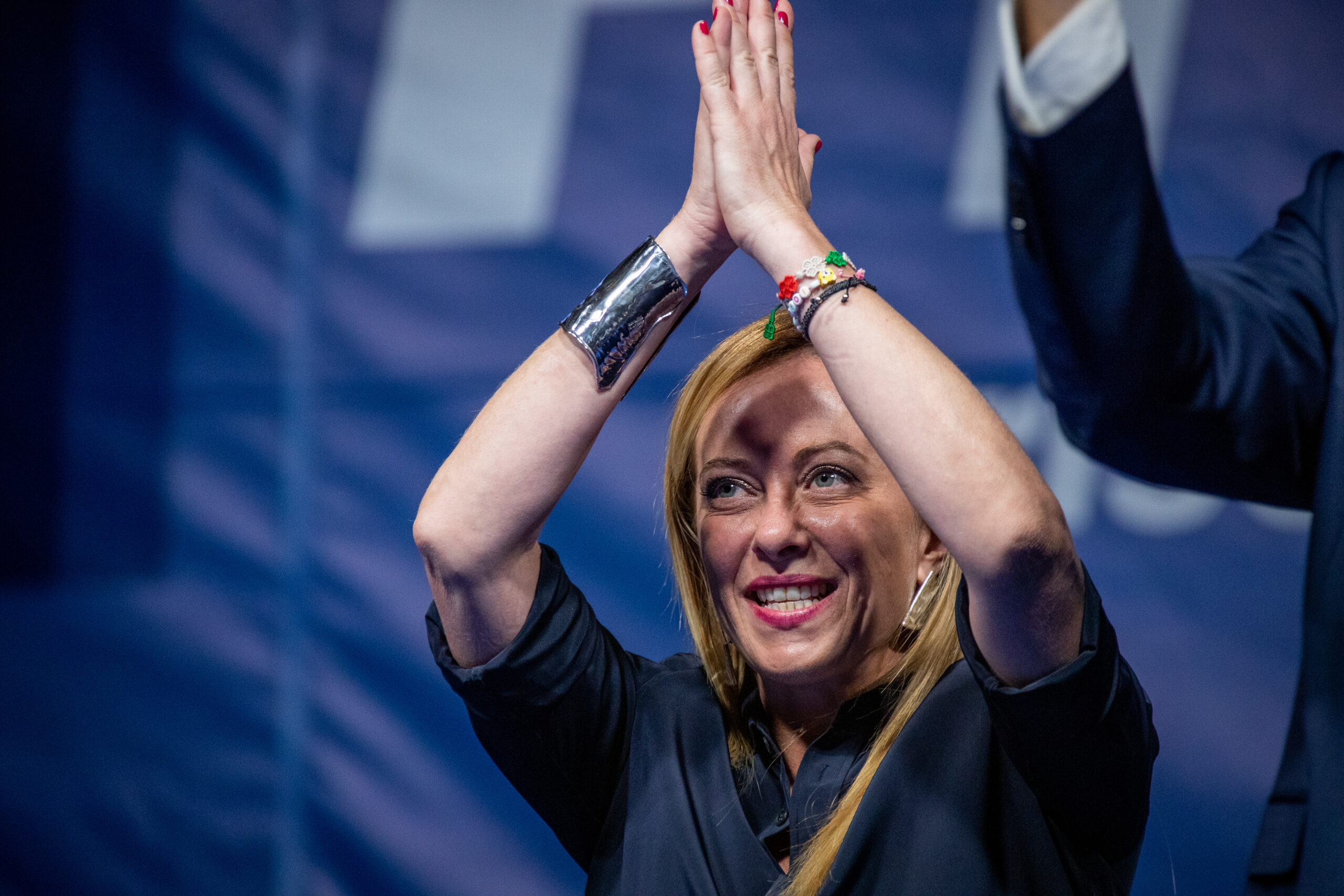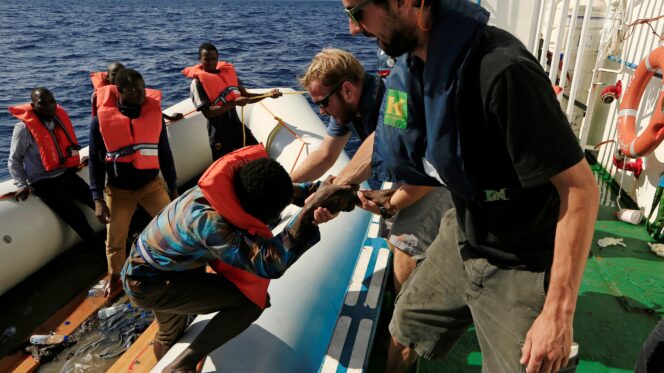As the Far Right Rises, Italy’s Left is Missing in Action
Giorgia Meloni has vowed to make people "proud to be Italian again".
by Matteo Tiratelli
27 September 2022

Over the last hundred years, Italy has often offered a glimpse into our political future: Mussolini before Hitler, Berlusconi before Trump, and populism before it was fashionable. We can only hope that this election proves to be less prophetic.
The results from Sunday are bleak: a landslide victory for the far right, collapsing turnout, and the ongoing absence of a left alternative. The post-fascist Fratelli d’Italia (FDL) won 26% of the vote, gaining support far beyond the right’s traditional northern strongholds. Together with the junior members of the rightwing coalition (Matteo Salvini’s Lega on 9% and Silvio Berlusconi’s Forza Italia on 8%), they will win a hefty rightwing majority in both the house and the senate.
Quite what Giorgia Meloni, Italy’s first female prime minister, will do with that majority is harder to say. Her party, FDL, is an indirect descendent of the fascism of the 1940s. And while she clearly has no interest in organising squads of paramilitary thugs, she has resurrected the old slogan “God, fatherland and family” and continues to promote conspiracy theories about the “replacement” of the “white race”.
A better model for understanding Meloni’s politics is probably to be found in eastern Europe, with Poland’s Law and Justice government or Viktor Orbán’s Fidesz in Hungary. These parties’ combinations of welfare chauvinism, authoritarian governance and social conservatism have inspired Meloni, just as they have the American right and France’s Marine Le Pen. This is visible in the coalition’s manifesto, which calls for a flat rate of income tax, free nursery schools and increases to child benefits, as well as vigorously defending the heterosexual nuclear family.
For Meloni, these seem to be the issues closest to her heart. She spent most of the campaign railing against the “LGBT lobby”, promising to guarantee the right of women to not have abortions, banning episodes of Peppa Pig which show a family of polar bears with lesbian parents, and arguing for a naval blockade of Libya to prevent further migration to Italy. In a Trumpian moment late on Sunday night, she used her victory speech to vow to make people “proud to be Italian again”.
With a large parliamentary majority, Meloni may be able to pursue much of this Catholic-conservative social agenda. Indeed, the greatest risk to her leadership is likely to come from the other members of her coalition. Salvini and Berlusconi – two men not known for their modesty – have been forced to play second fiddle in this election and they are likely to push back as soon as they feel they can.
But Meloni’s room for manoeuvre on economic issues will be much tighter. Over the last two years, Italy has become heavily dependent on relief funds from the EU – funds that are tied to a particular programme of neoliberal economic reforms. This means that having spent the last two years fighting a lonely battle against Mario Draghi’s technocratic government, Meloni will have to now adopt many of his policies if she wants to maintain access to the EU’s resources.
For the Italian centre left, Sunday’s results were a disaster. At the start of the race, the Partito Democratico (PD) was neck-and-neck with FDL. But over the campaign its support collapsed, leaving it with 19% of the vote, barely higher than in 2018. Enrico Letta, the party secretary, has already announced his resignation, and a winter of bitter factional infighting is likely to ensue as the PD prepares for its congress in early 2023.
As Il Manifesto – Italy’s only remaining communist daily newspaper – put it, this defeat brings into question “the very survival of a political project which has never wanted to choose between the centre and the left”. This contradiction was manifest in Letta’s electoral strategy. On the one hand, his desire to bring in smaller leftwing and green groups alienated the larger centrist parties, who walked out of his coalition and went on to win 8% of the vote on their own. On the other, he refused to work with the populist Movimento 5 Stelle (M5S) and campaigned on a promise to continue Draghi’s neoliberal reform programme, giving Italians the simple message that they had to “choose” between the sensible centre left and the dangerous far right.
Letta will have to take responsibility for his complete failure to reconcile this tension, and it will likely spell the end of his political career (although he’s already come back from being unseated by his own party in 2014, so never say never). But there are serious structural problems facing the PD. One of these is the familiar story of an increasing reliance on graduates and professionals, while workers turn to the right. But the other is more particular: the rise of M5S.
The M5S is an ambiguous political formation. Its roots are in constitutional reform and anti-elitism, but it then governed in alliance with the anti-migrant Lega, supported Draghi’s technocratic government and has now positioned itself as the defender of the welfare state. In its latest incarnation it won 15% of the vote, and has secured its role as the representative of the unemployed and the south.
M5S now seems to be a fairly stable feature of Italian politics. Unless the PD can figure out how to respond, Italy is likely to continue to be that sad thing: a country without a left.
Matteo Tiratelli teaches sociology at University College London.


